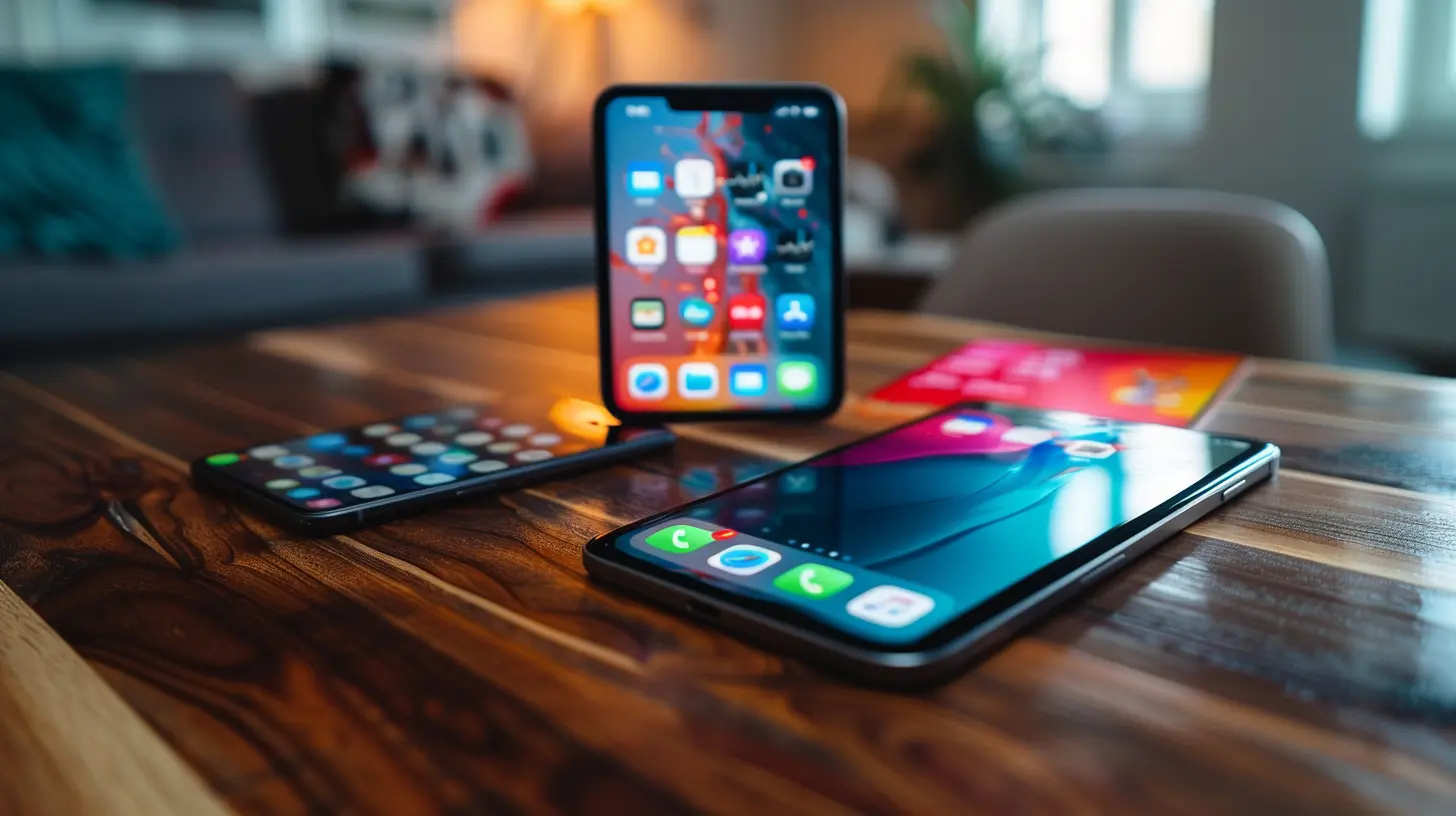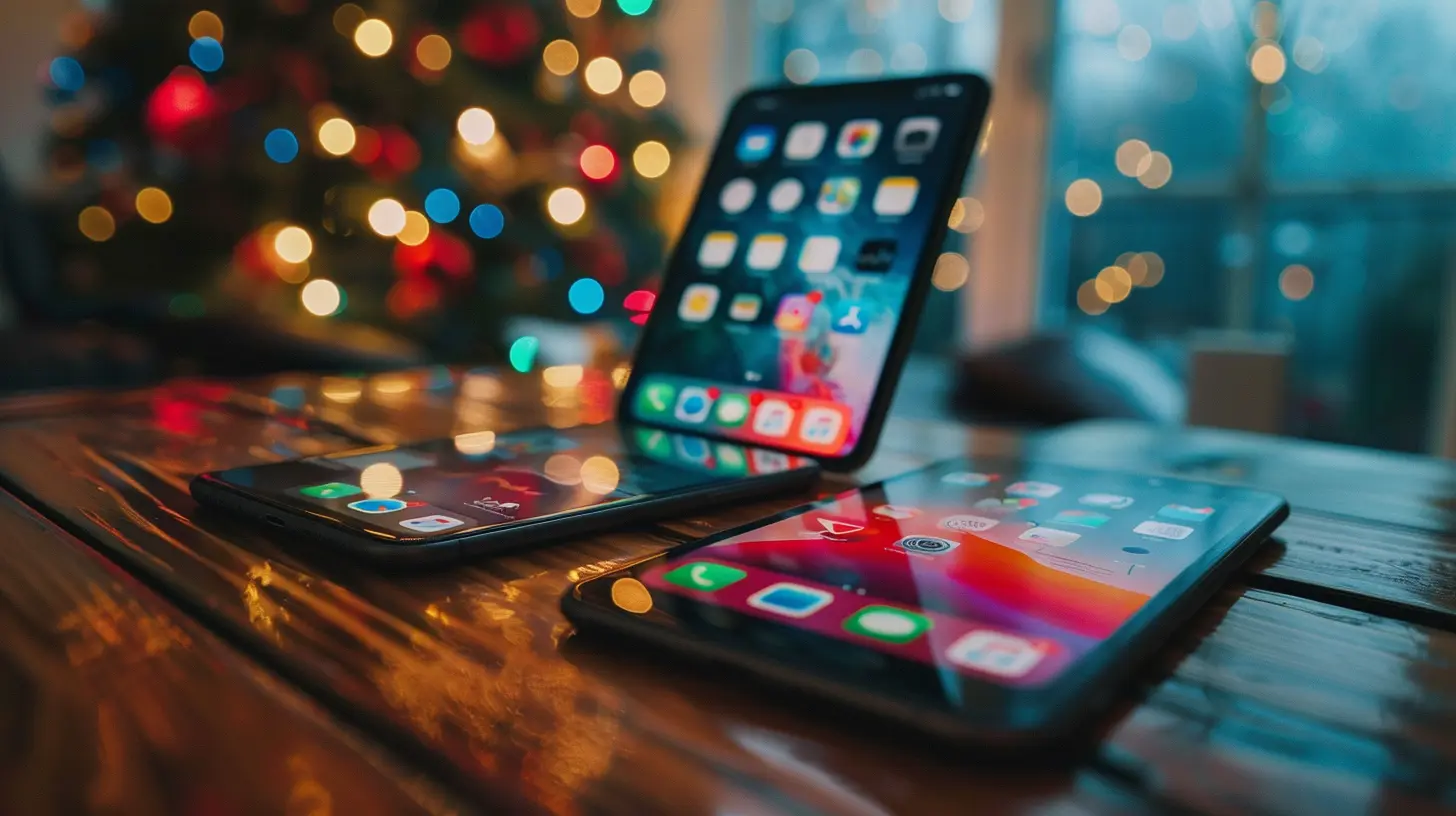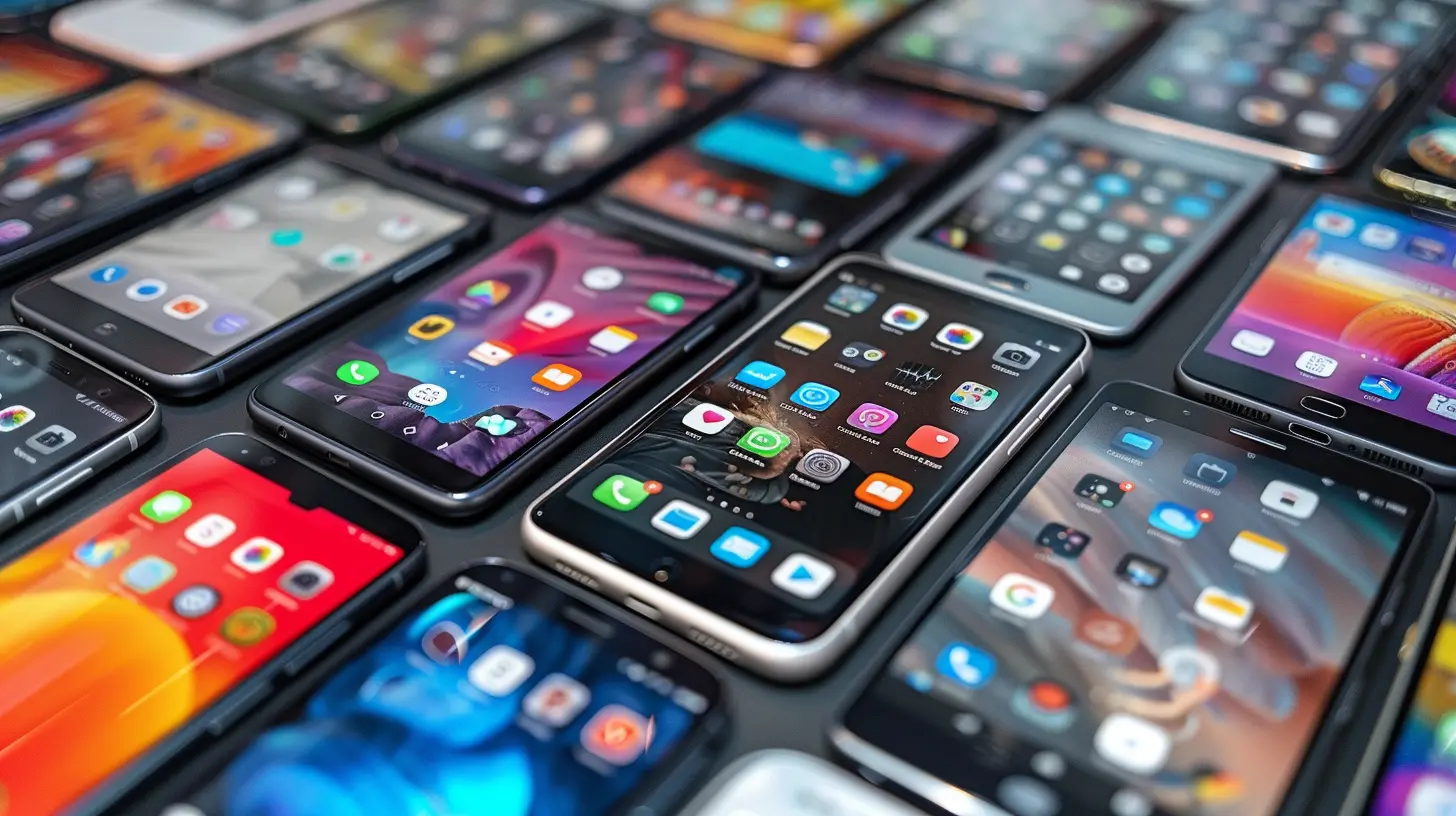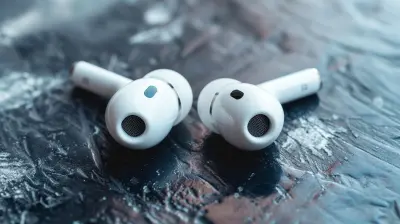Smartphones vs Tablets: Which Mobile Device is Right for You?
12 July 2025
Choosing between a smartphone and a tablet can feel a bit like standing at a tech crossroads. Both devices are powerful, feature-packed, and designed to make your life easier. But, as much as they seem similar, they serve different purposes. So, which one is right for you? Should you go with a pocket-sized powerhouse or a larger, more immersive experience?
Let’s break it down and explore the key differences between smartphones and tablets, helping you decide which one fits your lifestyle like a glove.

Portability: Does Size Really Matter?
One of the most obvious differences between a smartphone and a tablet is their size. It’s the first thing you notice, right? Smartphones are small enough to fit in your pocket, while tablets? Not so much.Smartphones: The Ultimate Pocket Companion
There’s no denying it—smartphones win hands down when it comes to portability. You can slip them into your pocket, bag, or purse and carry them wherever you go. Whether you're commuting, walking down the street, or just lounging around, your smartphone is always within arm’s reach.Need to quickly answer a text or check your social media? No problem. Smartphones are designed for quick, on-the-go interactions. You don’t even need two hands most of the time.
But here’s the thing—while smartphones are great for convenience, that smaller screen can sometimes feel limiting, especially if you’re trying to watch a movie, write an email, or browse the web for an extended period.
Tablets: The Portable Powerhouse (With a Caveat)
Now, tablets are still portable, don’t get me wrong. They’re just not as portable as smartphones. They’re more like a mini-laptop that you can carry around, but you’ll probably need a bag or case to keep them safe.That said, tablets offer a much larger display, which is fantastic if you’re someone who enjoys reading, gaming, or binge-watching your favorite shows. The bigger screen makes everything more immersive and easier on the eyes. Plus, typing on a tablet feels more like using a laptop, so if you do a lot of writing or productivity tasks, a tablet might feel like the better choice.
In short: Smartphones are perfect for quick, on-the-go use, while tablets are ideal if you want a larger screen but are willing to sacrifice a bit of portability.

Performance: Power in Your Pocket or on Your Lap?
Another key factor to consider is performance. Both smartphones and tablets have gotten incredibly powerful over the years, but there are some differences worth noting.Smartphones: Pocket-Sized Power
Smartphones have evolved into seriously powerful devices. Modern smartphones come equipped with high-performance processors, tons of RAM, and even AI-driven features to optimize performance. Whether you're playing graphics-heavy games, editing photos, or multitasking between apps, a good smartphone can handle it all.But here’s the kicker: While smartphones are powerful, they’re still limited by their size. A smaller form factor means less room for cooling, which can lead to throttling during intense tasks like gaming or video editing. Additionally, the battery life might not hold up as well under heavy use compared to a tablet.
Tablets: More Room, More Power
Tablets, on the other hand, generally have the upper hand when it comes to sustained performance, especially for productivity tasks. Why? Well, for starters, they have more room for cooling and larger batteries, which means they can keep going for longer without overheating or draining the battery too quickly.If you’re someone who does a lot of multitasking, a tablet might offer a more comfortable experience. With a larger screen, you can keep multiple apps open side-by-side, making it easier to switch between tasks. Plus, many tablets support accessories like keyboards and styluses, turning them into mini workstations.
In short: Smartphones pack a punch in a small form, but tablets often offer better sustained performance, especially for multitasking and productivity.

Battery Life: Can You Go the Distance?
When it comes to battery life, both smartphones and tablets have their strengths and weaknesses. But it really boils down to how you use them.Smartphones: Quick to Charge, Quick to Drain
Most modern smartphones come with fast-charging capabilities, which is great when you’re in a rush and need to juice up quickly. But here’s the thing—smartphones tend to have smaller batteries compared to tablets, and if you’re constantly using power-hungry apps, your battery can drain faster than you’d like.If you're someone who’s always on your phone—whether it’s for social media, streaming, or gaming—you might find yourself reaching for your charger more often than you’d prefer.
Tablets: More Battery to Burn
Tablets, on the other hand, often come with much larger batteries, which means they can last longer on a single charge. If you’re using your tablet for tasks like reading, watching movies, or light browsing, you might go a couple of days without needing to recharge.However, more intensive tasks—like gaming or video editing—will still drain the battery faster, but even then, tablets tend to hold up better than smartphones in terms of battery life.
In short: Smartphones might need more frequent charging, but they charge quickly; tablets tend to last longer, especially for less demanding tasks.

Camera: Do You Snap Photos Like a Pro?
When it comes to cameras, smartphones have clearly taken the lead over tablets. Let’s be real—how often do you see someone whipping out a tablet to take a photo?Smartphones: The Go-To for Photography
Smartphones have become the default camera for most people, and for a good reason. Many modern smartphones come equipped with multiple lenses, offering wide-angle, telephoto, and even macro shots. The image quality has gotten so good that a lot of people are ditching their standalone cameras altogether.Plus, smartphones are super portable, which means they’re always with you to capture that perfect moment. Whether it’s a spontaneous selfie or a beautiful sunset, your smartphone is ready to snap away.
Tablets: Just... Okay
Tablets, on the other hand, typically don’t focus as much on camera quality. Sure, they have cameras, but they’re not nearly as sophisticated as those found in smartphones. The rear camera on most tablets is functional, but it’s not something you’d want to rely on for high-quality photography.In short: If taking photos is important to you, smartphones are the way to go. Tablets? Not so much.
Entertainment: Movies, Games, and More
When it comes to entertainment, it really depends on what kind of experience you’re looking for. Both smartphones and tablets can handle a variety of entertainment options, but the way you experience them will differ.Smartphones: Quick Fixes on the Fly
Smartphones are excellent for short bursts of entertainment. Whether it’s streaming a quick YouTube video, catching up on Instagram stories, or playing a mobile game, smartphones are always there to give you a quick fix.But let’s be honest—watching a two-hour movie on a tiny screen isn’t exactly ideal. Sure, it’s doable, but it’s not the most immersive experience.
Tablets: Immersive Entertainment
If you love watching movies, playing immersive games, or reading books, a tablet might be a better fit. The large screen just makes everything look better. Shows are more cinematic, games feel more engaging, and reading is easier on your eyes.Plus, tablets often come with better speakers than smartphones, which can make a noticeable difference in your overall entertainment experience.
In short: Smartphones are great for quick entertainment on the go, but for a more immersive experience, tablets take the cake.
Productivity: Work or Play?
Finally, let’s talk productivity. Whether you're working from home, studying, or just trying to stay organized, both smartphones and tablets offer productivity tools. But one might suit your needs better than the other.Smartphones: Great for Quick Tasks
Smartphones are excellent for quick tasks—checking emails, sending messages, and jotting down notes. But when it comes to long-term productivity, the smaller screen can be a bit of a hindrance. Typing long emails or working on spreadsheets for extended periods just isn’t as comfortable on a smartphone.Tablets: Your Mini Workstation
If you’re looking for a device that can handle more complex tasks, a tablet is probably the better choice. With a larger screen and support for accessories like keyboards and styluses, tablets are much better suited for productivity. You can edit documents, manage spreadsheets, and even do some light graphic design on a tablet without feeling cramped.In short: Smartphones are great for quick tasks on the go, but tablets are better suited for more intensive productivity.
Final Thoughts: Which One Is Right for You?
So, which should you choose—a smartphone or a tablet? The answer depends on your lifestyle and how you intend to use the device.- If you’re always on the go and need a device that fits in your pocket, go with a smartphone. It’s perfect for quick interactions and everyday use.
- If you prioritize entertainment or productivity, a tablet’s larger screen and enhanced capabilities might be more your speed.
At the end of the day, both smartphones and tablets have their strengths and weaknesses, and there’s no one-size-fits-all answer. Think about what features matter most to you, and you’ll find the device that fits your life like a glove.
all images in this post were generated using AI tools
Category:
Mobile DevicesAuthor:

Kira Sanders
Discussion
rate this article
2 comments
Zealot Graham
While smartphones offer unparalleled portability and instant connectivity, tablets excel in screen size and usability for media consumption and productivity tasks. The choice ultimately depends on user needs—whether prioritizing on-the-go convenience or a more immersive experience for work and entertainment.
October 22, 2025 at 2:33 AM

Kira Sanders
Thank you for your insightful comment! It’s true that the decision between smartphones and tablets really hinges on individual preferences and specific use cases. Each device has unique strengths to cater to different needs.
Lark McLaughlin
Great article! It’s essential to consider personal needs when choosing between smartphones and tablets. Factors like portability, screen size, and usage scenarios can significantly influence the decision. I appreciate the insights provided, as they help clarify these options for potential buyers.
July 14, 2025 at 2:36 AM

Kira Sanders
Thank you for your feedback! I'm glad you found the insights helpful in navigating the smartphone vs tablet decision.


